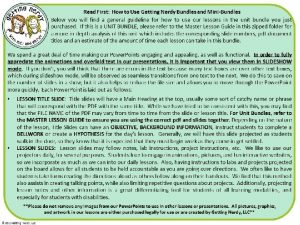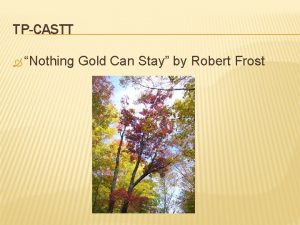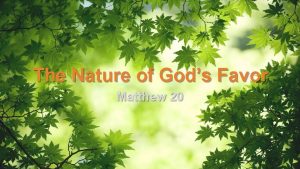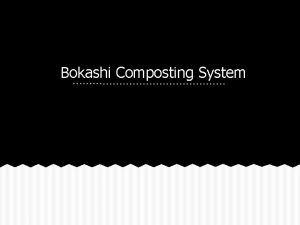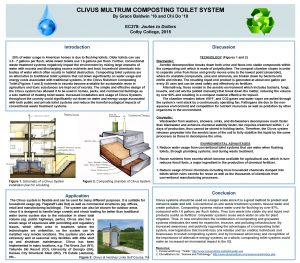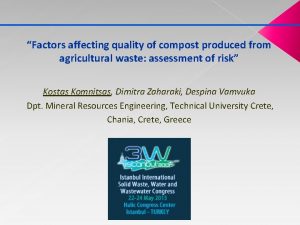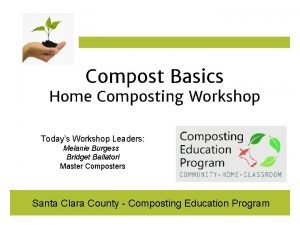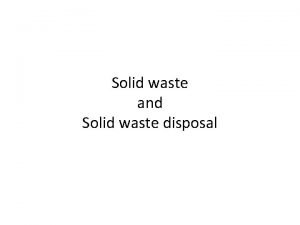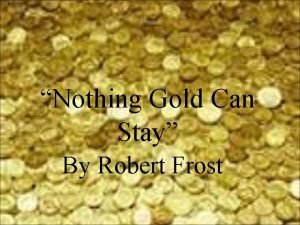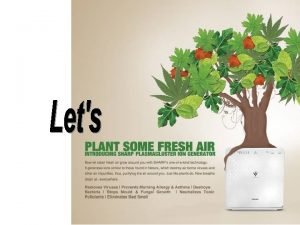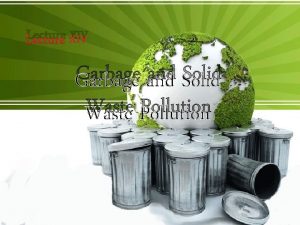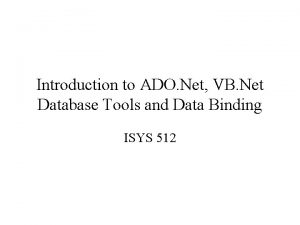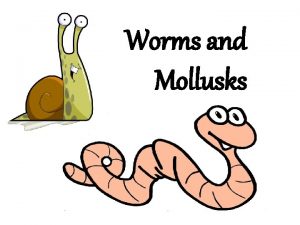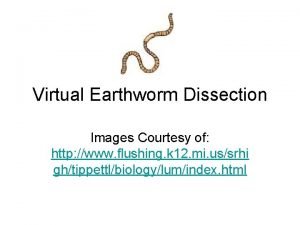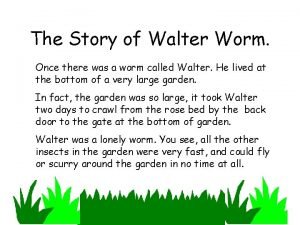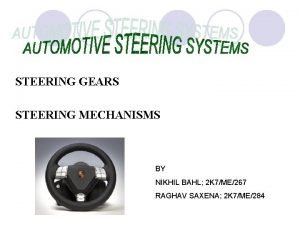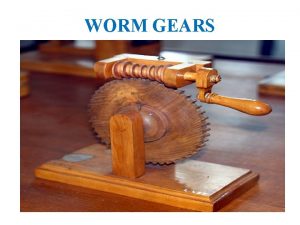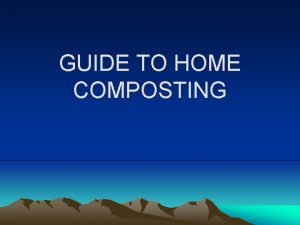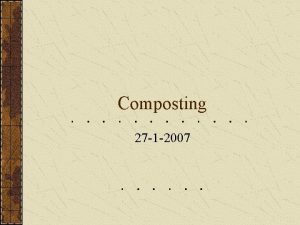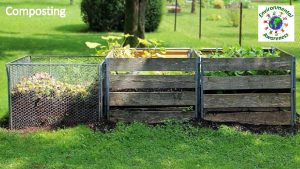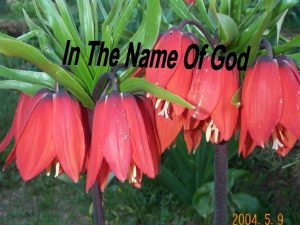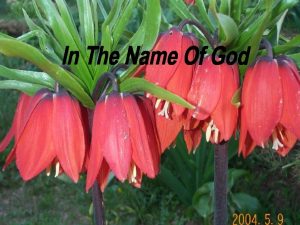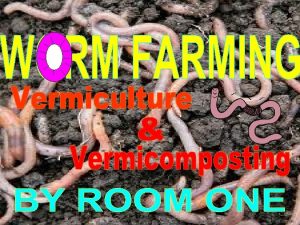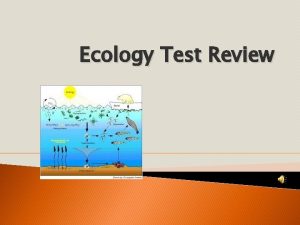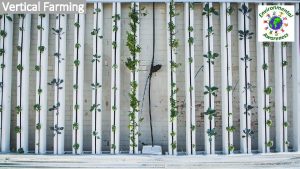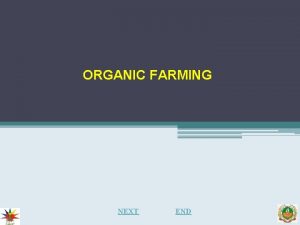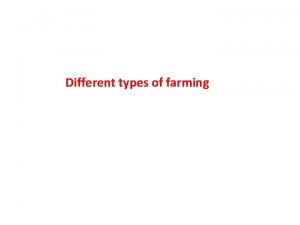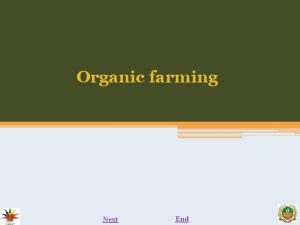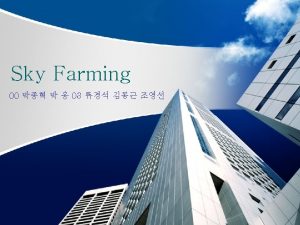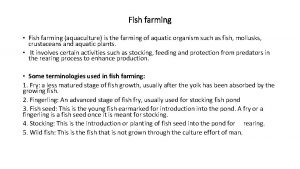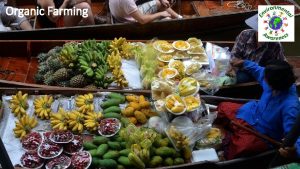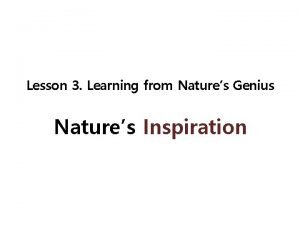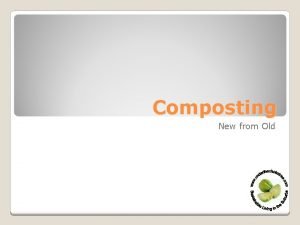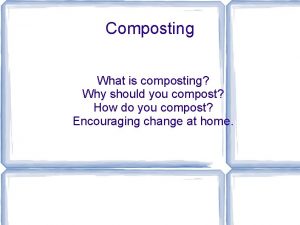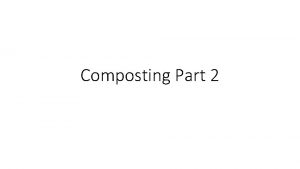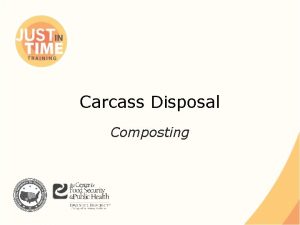Natures Recyclers Composting Worm Farming Lesson 2 Net



























- Slides: 27

Nature’s Recyclers: Composting & Worm Farming Lesson 2 Net. Waste Teacher Resource for primary schools

Food, glorious food! Food is important, and we all need to eat. The fact is that a lot of the food we buy, ends up in the bin! Source: http: //www. foodwise. com. au/

What do we throw away each week? • Each week, the average Australian household’s general waste bin contains: • Approximately 25% of materials suitable for recycling • Over 50% food waste and garden waste this is known as organic waste • Approximately 25% of general waste materials

What is organic waste? Organic materials are materials that are (or used to be) alive, whereas nonorganic materials are non-living materials. Some examples of organic and non organic waste materials are given in the table below. Can you think of some others? Organic waste materials • Apple core • Dead leaves • Watermelon skin • Grass clippings Non-organic waste materials • Milk bottle • Plastic bag • Baked bean can • Lolly wrapper

Where does the rubbish go? • Rubbish from your general waste bin gets taken to a LANDFILL • At the landfill, large machines such as dozers and compactors drive over the rubbish to compact it (squash it down), before burying it under soil • This means that more rubbish can be added on top. What do you think happens to all this rubbish?

What happens to organic waste at landfill? • When large quantities of organic waste break down (decomposes) in landfill it can create a gas called METHANE • Methane is a GREENHOUSE GAS that can cause damage to the environment if it is allowed to escape • When the rotting organic waste mixes with rainwater, this creates a liquid called LEACHATE • Leachate is a POLLUTANT and must be carefully managed to ensure it does not escape into waterways • Landfills are carefully managed to protect the environment

Running out of space FU Ne L L 3 x t la 8 4 he , nd mo 40 on 0 k fill ) m (T

Why recycle organics? Environmental benefits ü Extend the life of landfills ü Reduces greenhouse gas emissions Valuable resource ü Free natural fertiliser ü Improves soil structure ü Improves water retention properties

Closing the loop Composting or worm farming Nutrients returned to soil Organic waste Improved plant productivity

What is composting?

The ADAM recipe Aliveness Diversity Aeration Moisture

Aliveness

Diversity Neutralisers: Wood ash, lime, egg shells, dolomite Other great ingredients: comfrey, yarrow

Aeration Compost Turner Garden Fork

Moisture can come from many sources: ü Grey water – e. g. from washing up ü Cooking water ü Hot water bottle ü Tea or coffee pot ü Flower vase Your compost should be about as moist as a wrung out sponge

Other important factors Temperature ü Sunny position – compost should reach approx. 60°C Time it takes to create compost ü 6 -8 weeks – dedicated composter ü 4 -6 months – casual composter

The end product

Troubleshooting SLOW= Not enough air, no active ingredients Turn heap, add water, add manure SMELLY= Too wet, not enough air, too acidic Add dry material, turn heap, add dolomite SMALL FLIES= exposed fruit Cover with soil or any brown material VERMIN= wrong food or warm dry nest Remove breads, grains, meat or dairy products, cover entry with wire, turn heap, moisten

Worm farming ü Ideal for homes with small or no yards ü Primarily for food scraps ü Low maintenance ü Faster process than composting ü Produce castings and liquid fertiliser

DIY Worm farming

Compost Worm facts • Special compost worms live in a worm farmnot earthworms • Population doubles every 2 -3 months • Eat their body weight in 24 hours • Average lifespan of 2 -3 years • No teeth, eyes, ears or nose but 5 hearts • Sense vibrations, light and temperature • Breathe through the pores in their skin

Worm farm set-up Lid with air vents/ fly screens Feeding tray Bedding tray Liquid collection tray Tap

What do worms eat? Tip: adding garden lime to the worm farm can help to eliminate smells. ü Fruit and vegetable scraps ü Egg shells ü Tea bags/leaves & coffee grounds ü Torn up moist paper and cardboard

What don’t worms eat? û Citrus peel û Dairy products û Onion and chilli û Bread or pasta û Meat û Grass clippings û Oily or salty food

Harvesting worm castings

Troubleshooting TOO WET: Worms can drown, system lacks oxygen Fluff castings, add shredded paper. Empty casting from lower trays to improve drainage. TOO DRY: Worms will overheat Cover working layer with wet cardboard or hessian. On hot days, spray working layer with a water mister. SMALL FLIES: Exposed fruit or excess moisture in farm Sprinkle the working layer with dolomite or garden lime, add crushed egg or oyster shells. Improve drainage. BAD SMELL: Decomposing food scraps Hold off feeding until most of the food in the tray has been eaten. Sprinkle with dolomite or garden lime.

Pledge of Commitment Make a Pledge of Commitment that your class will honour for the year. You could… • Establish our own compost bin and worm farm at school or at home • Collect fruit and veggie scraps from our lunchboxes every day to feed to the compost bin or worm farm. • Frequently discuss the types of things we can put into our compost bin or worm farm. • Check on our compost bin or worm farm weekly to ensure it is healthy and functioning. • Frequently discuss the positive impact our class is having on the environment by recycling organic waste.
 Association of oregon recyclers
Association of oregon recyclers Worm dissection worm scienstructable template
Worm dissection worm scienstructable template Personification in nothing gold can stay
Personification in nothing gold can stay Natures%20truth%20men
Natures%20truth%20men Bokashi composting toilet
Bokashi composting toilet Takakura composting
Takakura composting Disadvantages of composting
Disadvantages of composting Clivus multrum composting toilet
Clivus multrum composting toilet Factors affecting composting
Factors affecting composting Discuss the need and scope of educational psychology
Discuss the need and scope of educational psychology Home composting
Home composting Bangalore method
Bangalore method Nothing gold can stay theme
Nothing gold can stay theme Natures pure purifier
Natures pure purifier Wicler
Wicler Lesson 2 farming the plains answer key
Lesson 2 farming the plains answer key Lesson 2 farming the plains
Lesson 2 farming the plains Achmed lach net ich krieg mein tach net
Achmed lach net ich krieg mein tach net Ado.net vb.net
Ado.net vb.net Are worms mollusks
Are worms mollusks External parts of an earthworm
External parts of an earthworm Worm wigwam
Worm wigwam Walter the worm book
Walter the worm book Samy worm
Samy worm The conqueror worm poem
The conqueror worm poem Worm and sector steering gear animation
Worm and sector steering gear animation Sql slammer worm bytes
Sql slammer worm bytes Pelodera dermatitis
Pelodera dermatitis

